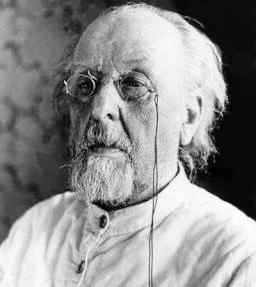The philosophy of Russian cosmism is inextricably linked with the works of ancient authors, as well as with the mysterious world of the Ancient East. For all these great philosophical systems, the main thing was to know not the world around us, but man himself.
Representatives of Russian cosmism considered the spiritual life of man as an unsolved reality, the important side of which is deep penetration and interaction with cosmic or divine being. According to these scientists, the strength of a person lies not in his ability to think abstractly, not in his ability to acquire and accumulate knowledge, but in his ability to become aware of himself as a spiritual being, having a close relationship with the Creator.
The philosophy of Russian cosmism as a special spiritual and philosophical direction based on scientific knowledge begins to take shape in Russia at the end of the 19th century. The term "cosmism" itself appeared a little later and began to mean a special worldview, based, on the one hand, on the specific scientific knowledge that humanity had already obtained at this point, and on the other, on Cosmos as the highest knowledge that man has yet to comprehend.

Russian cosmism, philosophy, being, worldview - all these concepts gradually won the minds of the enlightened intelligentsia. All of them were laid in the works of remarkable Russian scientists, such as N.F. Fedorov, V.I. Vernadsky, K.E. Tsiolkovsky, A.L. Chizhevsky and many others. All of them felt the enormous responsibility of any scientist and simple person, not only to earthly civilization, but also to the universe as a whole. For these researchers, the most important point in any scientific discovery was the question of whether it would harm the fragile balance formed between Man, Nature and the Cosmos.

The philosophy of Russian cosmism was the first scientific system that sought to characterize the whole world as a whole, including outer space unknown so far. So, the most famous representative of Russian cosmism today is K.E. Tsiolkovsky, in his fantastic works, not only became the founder of modern space science, not only talked about exploring the Universe as an inevitable process, but also emphasized the enormous responsibility that a person assumes, penetrating into uncharted areas. In addition, the famous scientist saw in the process of space exploration a huge potential for bringing people of different races, beliefs and nationalities closer together. A single problem should contribute to the cessation of all strife on Earth, people should not direct their accumulated resources to wars and civil strife, but to achieve a truly significant goal.
The philosophy of Russian cosmism is of great interest today. A lot of what famous scientists wrote about a century ago has already become commonplace, however, mankind still has a lot of unsolved mysteries and unexplored secrets. At the same time, moving forward in terms of space exploration alone seems unproductive and unlikely. Only by combining their forces and resources, people can move to a new level of comprehension of the world.